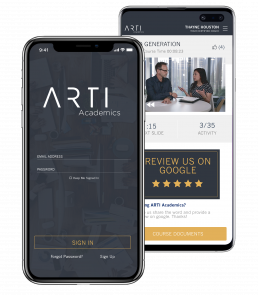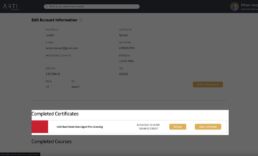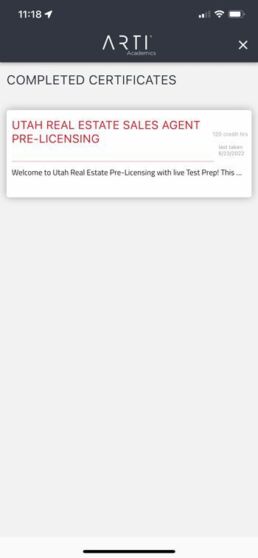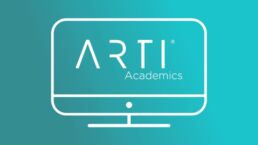New Technology From ARTI
Proptech Company reinvents Real Estate Fundamentals with Third Software App
Brokers Technology, a leading Proptech company, has recently expanded its real estate suite by launching ARTI® Tools, an innovative app designed to address common challenges faced by real estate professionals. The company’s mission is to empower industry professionals with practical knowledge, expert guidance, and cutting-edge products, enabling them to put buyers and sellers first in their real estate journey. This is the third product in the ARTI® suite after marketing and transaction software ARTI® Transact, and leading education platform ARTI® Academics.
Tackling Everyday Real Estate Challenges
Real estate professionals often grapple with complex everyday math concepts that can be time-consuming and confusing to calculate. ARTI® Tools aims to simplify these calculations by providing user-friendly solutions tailored to the needs of industry professionals. By streamlining these processes, real estate agents can focus on delivering exceptional services to their clients. By making it free, it immediately becomes available to all.
Another challenge faced by real estate professionals is helping buyers determine the right time to purchase a home and evaluate the potential financial return on their investment. ARTI® Tools offers data-driven insights and personalized results, enabling professionals to guide their clients toward informed decisions.
Moreover, educating sellers on the total cost to transact can be a daunting task. With ARTI® Tools, real estate agents can provide clear and concise information to their clients, ensuring transparency and trust throughout the transaction process.
“Existing market solutions are often limited in scope, archaic, slow, and benefiting competitors rather than Real Estate Professionals. We create easy to use, yet innovative products that prioritize the needs of real estate professionals and the general public first, not last,” said Chief Technology Officer Matt Walter.
The Evolution of ARTI®
Since its inception, ARTI® has been dedicated to transforming the real estate industry through education and technology. Their history of innovation includes creating the leading real estate learning management platform in the country and the most powerful transaction and marketing platform processing tens of billions of dollars of real estate. By continually expanding their suite of products and services, ARTI® is a driving force in the real estate industry.
Key Insights from Industry Experts
Dr. Amanda Wickra, Director of Education for ARTI® Academics recently praised ARTI Tools for its ingenuity and effectiveness in addressing industry challenges. She stated, “ARTI® has once again demonstrated their commitment to empowering real estate professionals with the launch of Tools. This product solves the challenges of so many real estate agents in their everyday business.”
The Future of Proptech and Real Estate
With the launch of ARTI® Tools, Brokers Technology continues to solidify its position as a leader in the Proptech industry. Their dedication to innovation, personalization, and practical knowledge is reshaping the way real estate professionals navigate their careers. As the industry evolves the ARTI® name remains committed to developing cutting-edge solutions that empower real estate professionals and drive the future of the sector.
About ARTI® Academics
ARTI® Academics is the Highest-Rated Real Estate School in Utah, Nevada, and Texas, and is 100% Free. The school offers both Pre-Licensing and Continuing Education courses in an online video format to enhance your knowledge and build your real estate skills.
Are You Still There
“Are you still there?” Is probably your least favorite question by now. Yeah, it is ours too.
ARTI Academics offers 70+ CE classes, as well as Utah and Nevada Pre-Licensing courses. When students take a class from ARTI Academics, periodically a button pops up asking “are you still there?” If this button does appear, you can tap to dismiss the notice and your class will be resumed.
You may be wondering why this button even exists, as many other students have. This is a requirement put in place by state regulatory agencies. They want to make sure you are paying attention to our awesome real estate school instead of tuning us out. As annoying as the “are you still there?” button may be, we can’t remove this feature.
ARTI Academics is a new model in education. We are focused on academic excellence and real-world training for real estate professionals. Best of all, our classes are 100% free, forever. Since this button isn’t going away, choose to look on the bright side. Sure, you have to click the “are you still there” button, but at least you don’t have to pay for real estate school.
About ARTI® Academics
ARTI® Academics is the Highest-Rated Real Estate School in Utah, Nevada, and Texas, and is 100% Free. The school offers both Pre-Licensing and Continuing Education courses in an online video format to enhance your knowledge and build your real estate skills.
How to View Your Completed Classes
Not Sure What Classes You Have Completed?
Desktop
To view your completed classes, follow these steps:
- Click on the logo in the top right corner of the website
- Click “Account”
- Scroll down to your completed classes
Mobile
How to view your completed classes on the mobile app:
- Click the menu in the top right
- Click “Completed Classes”
NOTE: You will not see this text if you do not have any completed classes.
About ARTI® Academics
ARTI® Academics is the Highest-Rated Real Estate School in Utah and Nevada, and is 100% Free. The school offers both Pre-Licensing and Continuing Education courses in an online video format to enhance your knowledge and build your real estate skills.
The Best Real Estate School in Utah and Nevada Just Got Better
The Best Real Estate School in Utah and Nevada Just Got Better
Are you looking for an accredited real estate school in Utah or Nevada? Look no further than ARTI Academics. This school is the perfect choice for anyone who wants to become a certified real estate agent. With its top-notch curriculum and experienced instructors, ARTI Academics is regarded as the best real estate school in both states. Let’s take a closer look at why this is the case.
Cutting-Edge Curriculum
ARTI Academics offers students a cutting-edge curriculum covering all aspects of real estate, from appraising to investing. The classes are taught by experienced professionals who have spent years working in the field and have deep knowledge of the subject matter. Students will also gain valuable practical experience through hands-on activities that simulate real world scenarios.
World-Class Faculty
The faculty at ARTI Academics consists of highly qualified professionals with decades of experience in the real estate industry. They are passionate about teaching and strive to provide students with a thorough understanding of their chosen field. The faculty members are constantly updating their curriculums to keep up with changing trends and regulations in the industry, ensuring that their students receive the most up-to-date education possible.
Excellent Services
As well as providing excellent academic instruction, ARTI Academics also offers exceptional services such as career counseling, career placement assistance, and job search assistance. These services provide current students with invaluable guidance on how to succeed in their chosen fields after graduation as well as helping them find employment upon completion of their studies.
In short, if you’re looking for an accredited real estate school in Utah or Nevada, then look no further than ARTI Academics. This school provides world-class instruction from experienced professionals who have spent years working in the field, ensuring that its students receive top-notch training for success after graduation. So don’t wait any longer – start your journey towards becoming a successful real estate agent today!
About ARTI® Academics
ARTI® Academics is the Highest-Rated Real Estate School in Utah and Nevada, and is 100% Free. The school offers both Pre-Licensing and Continuing Education courses in an online video format to enhance your knowledge and build your real estate skills.
Best Online Real Estate School
What Makes the Best Online Real Estate School
Online education has increased in popularity in recent years, as it offers students a flexible and convenient way to learn. And who doesn’t want more flexibility and convenience in their lives? Real estate is a high-demand career field and is luckily one subject that is particularly well-suited to online learning. So, if you’re an aspiring real estate agent thinking about taking an online real estate course, here are some factors you’ll want to consider to help you choose the best online real estate school for you!
10 Things to Look for In Online Real Estate Schools
-
Accreditation
When choosing an online real estate school, it’s important to make sure that the school is accredited by the state. This means that the school has been evaluated by an external body and found to meet certain standards. Going through an accredited school is not only more likely to provide you with a high-quality education, but it is also the only way your real estate license application will be accepted by the state. So, this is a very important factor to consider when shopping for the best online real estate school for you.
-
Course offerings
Another important factor to consider when choosing an online real estate school is the courses that are offered. Does it offer pre-licensing courses? Does the school offer the continuing education courses you’re interested in? Are the courses offered at a time that’s convenient for you? Make sure to check out the course offerings before you enroll in an online real estate school.
-
Tuition and Affordability
Of course, you’ll also want to consider the cost of tuition when choosing an online real estate school. Make sure to compare tuition costs across different schools to find the most affordable option for you. You might be surprised to find out that Arti Academics offers quality real estate education completely free and online, but it’s true!
-
Student support
When you’re taking an online course, it’s important to have access to student support. This could include things like live chat, email support, or even a forum where you can connect with other students. You’ll also want to investigate whether or not the school offers practice exams and test prep opportunities. Schools that offer these extra supports often have a higher real estate license exam pass rate. So, make sure to check out the student support options before you make your final decision.
-
Reputation and Reviews
Additionally, you’ll want to consider the reputation of the online real estate school you’re considering. Do some research to see what other people are saying about the school. A good way to accomplish this is to read online reviews or even contact past students to hear their take on the real estate schools you’re looking at.
-
Time Commitment
Depending on your schedule and availability, you may want to consider an online real estate school that offers self-paced courses. This way, you can complete the coursework at your own pace and on your own schedule. You may find that many online courses are starting to follow this new pattern. Be sure to consider the overall time commitment as well, including how long the course will take you from start to finish.
-
Flexibility
Another factor to consider is the flexibility of the online real estate school you’re considering. Does the school offer courses that fit your schedule? Are there start dates throughout the year so you can enroll at a time that’s convenient for you? Will completing your licensing education through that school fit into your current lifestyle? These are all helpful questions to consider beforehand.
-
Communication
When you’re taking an online course, communication is key. You’ll want to make sure that the online real estate school you’re considering offers ways for you to stay in touch with your instructors and fellow students. This could include things like email, chat, and video conferencing. You don’t want to be left in the dark.
-
Convenience
Of course, you’ll also want to consider the convenience of the online real estate school you’re considering. Can you access the courses from anywhere? Are the courses offered at a time that’s convenient for you? Make sure to check out the school’s convenience factors before enrolling. On that note, Arti Academics offers a mobile app to help you do coursework and complete your classes on the go- talk about convenient!
-
Technology
Finally, you’ll want to consider the technology of the online real estate school you’re considering. Does the school use up-to-date technology? Are the courses easy to use and navigate?
These are just a few important factors to consider when choosing an online real estate school. By taking the time to research your options, you can find the perfect school for you. With so many great online real estate schools to choose from, there’s no reason not to get started today.
Bonus tips
Here are a few bonus tips to keep in mind when choosing the best online real estate school for you:
– Check out the school’s website to see if it’s user-friendly and easy to navigate.
– Read the school’s student handbook so you’re aware of the policies and procedures.
– Make sure the school has a good refund policy. This way, if you’re not happy with the school, you can get your money back.
Is Online Real Estate Education for Me?
Now that you know what to look for in online real estate schools, you may be wondering if online real estate education is right for you. Here are a few things to think about:
Are you self-motivated?
When you’re taking an online course, you won’t have the in-person push of getting your classes done during a designated time slot. You’ll need to be motivated to set a schedule and do the work on your own.
Do you have good time-management skills?
An online course requires you to be organized and manage your time well. You’ll be 100% in charge of staying on top of everything for yourself!
Do you have computer and internet access?
As a basic requirement of taking classes online, you’ll need a computer and internet access before you can get started.
Are you comfortable learning new things on a computer?
You’ll need to be comfortable using a computer for an online real estate course, as well as possibly using new software and navigating new websites. It might be a big learning curve for some, so be prepared!
If you answered yes to all these questions, then online real estate education is probably a good fit for you. No one knows your learning style better than you do. If you’re comfortable with the idea of taking an online course, then go for it!
Enrolling In an Online Real Estate Course
Now that you know what to look for in online real estate schools and whether or not online education is right for you, it’s time to enroll in a course! Here’s how to get started:
- Research different online real estate schools and compare their offerings.
- Once you’ve found a school and are ready to commit, choose and enroll in the course of your choosing!
- Pay any fees and tuition required by the school- remember, Arti Academics is free of charge!
- Follow the instructions provided by the school and successfully complete the coursework.
- After you’ve completed the course, you should be prepared to take and pass the real estate exam in your state!
There you have it – a simplified list of steps to enroll in an online real estate course. It doesn’t have to be rocket science! In fact, getting started is so simple, that you could be a licensed real estate agent in no time!
The Bottom Line
Choosing an online real estate school can be a daunting task. But if you keep these factors in mind, you’ll be sure to find the best online real estate school for you! Whether you’re just getting started in the real estate industry or you’re a seasoned professional, taking online real estate courses can be a great way to learn. With a wide range of schools and courses to choose from, it’s important to do your research to find the right one for you. Then, once you’ve found the perfect school to fit your needs, you will be on your way to becoming a licensed real estate agent!
Pre-Licensing Course
Pre-Licensing Course: How to Get Started in Real Estate
Found yourself feeling ready to jump-start your career in real estate, but unsure of where to start? That’s where we come in! Once you’ve made your decision and checked off the basic qualifications for getting a real estate license, it’s time to get started on your pre-licensing education. After all, completing your pre-licensing education is the first step to becoming a real estate agent and building a successful real estate career!
So, let’s get started on what you need to know about taking a real estate pre-licensing course!
What Exactly is a Pre-Licensing Course for Real Estate?
As mentioned before, a pre-licensing course is the first educational step to becoming a licensed real estate agent. The course is made up of a variety of real estate-related classes in order to meet your state’s real estate requirements. In the state of Utah, for example, aspiring real estate agents are required to complete 120 hours of approved pre-licensing education. Once completed, real estate students will have covered important topics such as property management, real estate finance, contracts, ethics, and more.
Before choosing a school, whether it be in-person or online, you’ll want to make sure that the school and pre-licensing course are approved and certified by your state. You can find this information by checking with your state’s Division of Real Estate. You definitely don’t want to skip this step, since your time and education won’t count if it’s not from an approved source! Be sure to select your state based on where you plan to practice as a real estate salesperson. ARTI Academics currently has a pre-licensing class approved for the state of Utah and the state of Nevada.
How are the Pre-Licensing Hours Broken Down?
According to Real Estate Principles and Practices in the state of Utah, the 120 hours of coursework are broken down as follows:
- 12 hours of Ownership of Real Estate
- 12 hours of Real Estate Brokerage and the Law of Agency
- 16 hours of Contracts
- 4 hours of Property Management
- 8 hours of Settlement
- 2 hours of Federal Taxation
- 16 hours of Real Estate Finance
- 6 hours of Valuation and Appraisal
- 2 hours of New Construction
- 4 hours of Math Skills
- 6 hours of Federal Laws
- 24 hours of Utah Law
- 8 hours of Testing and Review
This combines for a total of 120 hours of real estate education. This will look different depending on the state where you plan to practice, so always double-check the requirements for your state!
Choosing a Pre-Licensing Course
Now that you know what pre-licensing courses are and what they entail, it’s time to decide which one is right for you. When looking at different schools and courses, there are a variety of things you’ll want to consider:
- The quality of the course material
- The price of the course
- he length of the course
- The format of the course (online real estate education vs in-person)
The quality of the course material is important because you want to make sure you’re getting a quality education, not to mention your money’s worth. Some courses will come with live support options, real estate practice exams, and additional exam prep courses. On top of that, you’ll want to look for a course that is produced by an approved and reputable source, as well as one that has positive reviews from other students. Positive feedback given by past students is usually a good sign for the school and its courses.
The price is also an important factor since you’ll want to find a course that is affordable for you. There are many options out there for real estate school and pre-licensing courses to help fit within any budget. In fact, Arti Academics even offers its 120-hour pre-licensing course for free to its real estate students!
The length and format of the course are something you’ll want to consider based on your personal schedule and learning style. If you’re someone who learns best by being in a classroom setting, then you might want to look for an in-person course. These courses may require a little more travel from you, but they offer the benefit of having a teacher there to answer any questions you might have. If you’re someone who prefers to learn at your own pace, then an online course might be a better option for you. The time it takes to complete online courses can vary, as you are able to go more at your own pace. Online learning also gives you extra flexibility to work on the material when it’s convenient for you.
In the end, no matter which type of course you choose, make sure that you’re comfortable with the material and that you have a good understanding of the topics covered. The last thing you want is to be unprepared when it comes time to take your sales agent exam!
When Can I Take the Real Estate License Exam?
After you’ve completed your state approved pre-licensing course and met your hour requirements, it’s time to take the sales agent exam! Keep in mind that, although you are likely fresh out of your classes, it still pays to study. You wouldn’t want to spend even more time, energy, or money when you could buckle down and study to help you pass the first time around. It’s worth it!
The good news is that you don’t have to take the exam right away if you don’t feel ready. In fact, in most cases, you have up to one year from the date of your course completion to pass the real estate exam and apply for a license. This gives you some extra time to study and make sure you’re prepared. Just remember that you’ll want to take the exam within a year so that your training and coursework don’t expire. And if you choose to wait to take your exam, be sure to continue to study hard until you pass the test.
Is a Pre-Licensing Course the Only Education I’ll Need to be a Real Estate Agent?
No! While a pre-licensing course is required to get your initial real estate license, it’s not the only education requirement you’ll need to meet throughout your real estate career. In order to keep your license active, you’ll need to fulfill continuing education requirements for every license renewal period. These continuing education courses help to ensure that you’re keeping up with the latest changes in the industry and that you’re prepared to best serve your clients as real estate professionals.
The good news is that, just like with pre-licensing courses, there are many different continuing education courses available to fit your budget, schedule, and learning style. You can even find courses that are offered online (and FREE through Arti Academics) so that you can complete them at your own pace.
Ready to Take Your First Step? Let’s Go!
If you’re really interested in becoming a real estate agent, the first step is to sign up for a pre-licensing course. From there, your classes will help you to learn the basics of real estate and prepare you to take the real estate sales agent exam. Then, once you’ve completed your coursework and met all your pre-license education requirements, you’ll be one step closer to an exciting new career in the real estate industry!
Get your real estate license at Arti Academics
Real Estate Licensing
Everything you need to know about getting your real estate license.
It’s no secret that real estate is a booming industry! In fact, it’s likely that the real estate market is only going to continue to grow in the years to come. So, if you’re thinking of starting a new career or have always wanted to jump into the real estate agent life, now might be the perfect time to get your real estate license!
But where do you start? That’s where we come in. In this article, we’ll walk you through everything you need to know about getting your real estate license – from the basics of what it is and how it works, to what you need to do in order to qualify for licensure. We’ll also give you a few tips on how to get started in your new career. So read on for all the information you need to get your real estate license!
What Is a Real Estate License?
A real estate license is a credential that allows an individual to legally practice the profession of real estate in their state. To obtain a real estate license, an individual must successfully follow and complete a few key steps. To help you get a general idea, here’s a simplified rundown of the licensing process:
- Complete the required hours of approved pre-licensing education
- Pass the state-approved Real Estate License Exam
- Fill out and submit the license application
- Choose a Real Estate Broker to work with
Once an individual has finished these steps, they will be able to use their license and legally work as a real estate agent in their state. (Be sure to keep in mind that requirements may differ slightly depending on the state in which you live and plan to work as a licensed real estate agent.)
Where Do I Start?
There are a few basic things to think about before jumping on the real estate express.
Make Sure You Meet Basic Qualifications
In the state of Utah, three basic qualifications must be met before you can get your license.
- Meet statutory licensing qualifications of integrity, honesty, truthfulness, competency, and reputation.
- Be at least 18 years old when you apply
- Have a minimum of a High School diploma or equivalent
Consider Your Individual Timeline
After you’ve found you meet the basic qualifications, one of the first things you should do is sit down and create a timeline for getting your real estate license. The average time it takes to finish pre-license education is around 4-6 months, but it can sometimes be completed as quickly as 8 weeks. Depending on how quickly you want to get started in your new career, you might want to set a goal of completing the licensing process within a certain number of months. Consider how much free time you’ll have to dedicate to getting your license and plan to go at your own pace- whatever you’re comfortable with. Just remember that every situation is different. Some people might be able to complete the process more quickly than others, while some may need more time and there’s nothing wrong with that.
Think About Your Career Goals
It’s also important to think about your goals for your new career as a real estate agent. Do you want to work with buyers? Sellers? Renters? Do you want to specialize in a certain type of property, such as residential or commercial properties? Consider your overall goal and think about the steps you’d like to take so you can reach it.
Determine Your Budget
Another thing you’ll need to think about as you start the process of getting your real estate license is the cost. There are a few different fees associated with obtaining your license such as the cost of pre-licensing education, the state licensing exam, and the license itself. It’s important to create a budget so you can be prepared for the financial investment required to obtain your license.
Choose a School
There are a variety of real estate school options to choose from. Some people opt to go through an online real estate school, while others prefer in-person classes. There are Pros and Cons to both types of courses, depending on things like your budget, time availability, learning style, and location. You’ll want to make sure the school of your choice is accredited and approved as a Real Estate Pre-License School as well. Some schools also offer practice tests and exam prep in addition to the required coursework. So, do some research beforehand and figure out which option is best for you.
If you’re looking for an online real estate school with great reviews, flexibility, and a variety of online courses, Arti Academics could be right for you. Not to mention, it’s free! Plus, it offers a mobile app so you can take your coursework on the go.
Real Estate Courses
Next, you’re ready to enroll in your chosen real estate courses. In Utah, it’s required to complete 120 hours of real estate education. These hours will be filled with classes about the legal and financial processes of real estate sales. Examples include property management, contracts, ethics, real estate finance, property appraisals, Utah laws, and federal laws.
Follow The Steps to Earn a Real Estate License
Since real estate licensing requirements vary depending on the state, it’s important to follow those set by the state in which you plan to practice real estate. The overall steps are generally the same, but some of the specific details may change. So, here we will focus on getting a real estate license in the state of Utah.
Complete Pre-Licensing Coursework
The first official step you need to follow is to complete the required hours of pre-licensing education. In Utah, this means completing a total of 120 hours at an accredited real estate school. As mentioned earlier, this will include courses in real estate transactions, property management, ethics, law, and more. Once you’ve completed your education requirements, you can then schedule to take the state’s licensing exam.
Pass The State-Approved Real Estate License Exam
After you’ve completed your pre-license education, you’ll need to pass the real estate licensing exam. This is a state-approved sales agent exam that tests your knowledge of the concepts covered in your coursework. You must receive a passing grade before you can apply for a license.
Submit Your Real Estate License Application
Once you’ve completed the required education and gotten a passing score on the real estate exam, you can apply for your license. Keep in mind that there is a time limit on applying for a real estate license in Utah. You must have completed your pre-license coursework within the past year and passed the real estate exam within the past 90 days.
To submit your license application, you’ll need to gather a variety of documents to send in. This includes the Utah Real Estate Sales Agent Application, Qualifying Questionnaire, consent to a background check, proof of your completed education, and a non-refundable fee of $157. You’ll also need to be fingerprinted as part of the application process, which is most often done right after completing the exam at a Utah testing center.
Choose A Real Estate Broker
After you’ve obtained your real estate license, you’ll need to choose a brokerage to work for. A real estate broker is someone who supervises and oversees all transactions made by real estate agents. They can help guide you and answer any questions you might have as a new real estate agent. You’ll also share a percentage of your commission with your broker, so be sure to ask about the commission structure before joining just any team.
Take Advantage Of Your Real Estate License
You’ve done it! You’re now a licensed real estate agent in the state of Utah. All that’s left to do is get started in your new career. Use the resources and connections you gained during your education and broker interviews to help get your business off the ground. And don’t forget, you can always renew your real estate license every two years as long as you complete the necessary continuing education requirements.
Ready To Become a Licensed Real Estate Agent?
By following these steps, you can obtain your Utah real estate license and begin your career in this exciting industry. Just remember to stay up to date on the latest industry news and trends and always put your clients’ best interests first. Good luck!
Real Estate Agent vs. Real Estate Broker: What's the Difference?
When it comes to buying or selling a home, there are many professionals you can work with. But sometimes having so many different options can make things a little extra confusing. For example, a real estate agent and a real estate broker can have similar job responsibilities but are still quite different positions. This might have you wondering what exactly the difference is between the two. In this article, we will explore the differing qualifications, job responsibilities, and salaries of each profession. This should help clear things up a bit, so let’s jump in!
Defining Real Estate Agent and Real Estate Broker
A real estate agent is someone who has a valid license to help clients buy, sell, or rent real estate. Real estate agents are always employed by a real estate broker or brokerage firm. A real estate broker must also be a licensed real estate agent and has the same basic duties as a real estate agent, however, they must. complete additional certification and licensing requirements. A real estate broker can choose to work independently, as well as hire other qualified real estate agents to work for them.
Qualifications for Real Estate Agents
In order to become a licensed real estate agent, you must meet certain qualifications. These qualifications vary by state, so be sure to keep that in mind as well. In most cases though, a person must:
- Be at least 18 years old and have a valid driver’s license
- Be a legal resident of the United States
- Have no criminal convictions related to fraud or misrepresentation
- Complete a pre-licensing course of education through an accredited school, meeting all hour requirements by the state
- Submit to fingerprinting, along with other background checks for their state
- Pass the state real estate license exam
- Choose a licensed real estate broker or brokerage firm to be sponsored by
Once these steps are completed correctly, you will be able to receive a real estate license in your state. After that, just keep in mind that you will need to complete a certain number of continuing education classes (check with your state for more specifics) to keep a valid license.
Qualifications for Real Estate Brokers
It’s always important to double-check with the state where you live since the process can vary slightly, but initially, the qualifications to become a real estate broker are the same as those of an agent. You can refer back to the previous section for a reminder of what those qualifications are. However, for a real estate broker, the process doesn’t stop there.
Real estate brokers continue with their education and successfully complete any further state requirements to receive their state real estate broker license. In general, the additional qualifications to become a broker are as follows:
- Once you become a licensed real estate agent, work as a real estate agent for on-the-job training and experience
- Continue to complete required real estate certifications approved by the state licensing board
- Complete a state-approved real estate broker course
- Take and pass the real estate broker exam
These steps make it possible for brokers to work on their own (without being sponsored by another brokerage) and even start their own brokerage where they can choose to hire other agents.
What Do Real Estate Agents Do?
A real estate agent wears many hats and often juggles many different job responsibilities at the same time. This includes everything from meeting with clients and giving them advice on possible houses to buy or sell, showing properties to potential clients, filling out real estate contracts and paperwork, doing research on the housing market in their area, working with mortgage brokers and lenders, etc.
It is important for agents to build relationships with their clients. This not only helps attract new clients, but it can also be very beneficial for existing clients to get the best possible service. Real estate agents must keep their clients informed about market trends and statistics, which can help them make knowledgeable decisions about buying or selling real estate. It’s also the real estate agent’s responsibility to ensure that their clients understand the requirements for completing a sale. This includes any necessary home inspections, paperwork, signatures, and important dates like moving or closing dates.
Real estate agents can take on a few different roles. A listing agent represents the sellers while the buyer’s agent represents the buyers. A listing agent will help their clients set an asking price for the property, suggest possible home updates that would increase the value of the home, help stage the home for open houses, and market the listing for a successful sale. A buyer’s agent works to locate properties that meet the buyer’s wish list as closely as possible. They also help set up home inspections and appraisals as needed. Both listing and buyer’s agents will complete paperwork and help make sure all the required forms and documents get signed and submitted promptly.
What Do Real Estate Brokers Do?
A real estate broker manages and helps their agents with all of the above duties. They oversee daily operations and transactions, supervise, train new hires, and manage other administrative staff. Brokers often oversee an entire team of agents as well as help market properties. This can mean they help come up with marketing plans, create ad copy for print and digital media, schedule open houses and property showings, write newsletters to current clients or those that may be looking to buy or sell soon, and even help create videos to market homes if needed.
There are three main job positions that a broker can have, each one with varying responsibilities. There are associate brokers, managing brokers, and principal brokers. An associate broker has a broker license but still chooses to work under another broker and not supervise other agents. A managing broker supervises and oversees daily operations and transactions within the office. They can also hire, train, and manage staff. A principal broker, also known as a designated broker, oversees the agents to make sure they are meeting all state and national real estate laws. In general, each office will have one designated broker.
Similar to real estate agents, brokers must also stay current on the latest market trends and information in order to be successful. Brokers need to help keep their team of agents up-to-date as well, so they can share best practices or offer guidance when needed. Brokers may also regularly meet with other members of the real estate community, such as mortgage brokers, other real estate agents, or inspectors to stay up-to-date on the latest news.
How Much Does a Real Estate Agent Make?
In most cases, real estate agents are paid based on a commission. This simply means that they receive a percentage of the closing sale price of a property. A real estate agent’s salary varies based on factors such as the. current real estate market, home sale prices, commission percentage, location, size of the brokerage, and type of transactions completed. Generally speaking though, a real estate agent makes anywhere from 5-6% of the purchase price.
It’s important to note that real estate agents don’t walk away with the entire commission amount. Typically, that amount is divided up between the listing agent, buyer’s agent, and the employing brokerage firms. This will impact the overall payout that each agent receives.
The average salary for a real estate agent working in the United States can fall anywhere between $40,000-90,000 per year. It’s quite the range but commonly falls closer to $50,000. In order to be successful in any sales position, it’s important to have a strong tolerance for rejection and persistence when going after new clients. In addition, real estate agents must be attentive and detail-oriented to complete all the necessary tasks and paperwork on time. All of these things can greatly affect a real estate agent’s overall income.
How Much Does a Real Estate Broker Make?
A real estate broker’s salary also varies depending on similar factors to those of an agent and is earned mostly through commission. Commission is one of the biggest rewards that real estate brokers receive. However, their overall income is often higher than an agent’s. This is because, in addition to the commission they make on their own deals, brokers may net additional revenue from the commissions earned by the real estate agents working under them.
The average yearly pay for a real estate broker in the United States is $54,000 per year but can reach as high as $210,000 yearly. As mentioned before, there are always multiple factors that can impact how much they make. This includes the current real estate market and location.
Another difference between the salary of a real estate agent and a real estate broker is that brokers aren’t required to split their commissions with the firm. Any commissions that the broker earns on their own real estate transactions will be theirs. That’s one bonus aspect of continuing education and training to become a broker.
Real Estate Continuing Education - Utah
If you’ve stepped into the real estate agent game, you’ve likely heard that you need to meet some requirements to keep your license current. This is true! Real estate agents are required to complete a fixed number of continuing education (CE) hours within a certain time period in order to maintain or renew their license. The requirements for license renewal may vary depending on the state in which you practice, so be sure to verify that wherever you are licensed.
In the state of Utah, it’s required for all licensed real estate professionals to complete 18 continuing education hours every two years. 9 of these 18 hours must be in approved CORE topics and 3 of the 9 hours must be spent completing a division approved mandatory course. If you are renewing your real estate license for the first time, it is required that you complete the 12-Hour New Agent Course as part of your 18 hours. To maintain your real estate license in an active state, you must meet the continuing education requirements before the 15th of your renewal month. If you choose not to do this, it’s possible to be hit with a late fee- so plan accordingly!
Why Do Real Estate Agents Need Continuing Education?
The purpose of this requirement is to ensure that real estate agents stay up-to-date on the latest industry trends and changes so that they can provide the best possible service to their clients. Similar to other growing and shifting business industries, it is important to be educated and current when working in the real estate industry. This helps make sure that no unnecessary bumps or mistakes are made along the way during real estate transactions. In the end, it’s the agent’s responsibility to complete continuing education courses that will benefit their clients and themselves.
Different Real Estate Education Courses Available
There are a variety of different continuing education courses to choose from- just don’t forget the required 3-hour division approved mandatory course or any other required classes (e.g. if it’s your first renewal). Other credit hours may cover topics such as residential real estate, commercial real estate, comparative market analysis (CMA), ethics and professional conduct, economics, property management, fair housing laws, short sales, risk management, and much more.
As mentioned above, the CE courses you choose to enroll in should be beneficial for both you and your clients. They should help you learn and grow as new agents or as a seasoned agent. The more foundational understanding you have, the better equipped you will be to help home buyers and other clients reach their real estate goals.
Where to Find Continuing Education Courses
Once you have a general idea of the type of courses that will work best for you, you can start finding them online. There are multiple companies and providers out there who offer different options, so you’re only limited by your choice of preference. However, not all educational opportunities are equal- depending on quality and price. Luckily, there are multiple companies that focus on real estate education and offer a variety of great options for agents at all levels.
Arti Academics offers a variety of free continuing education courses, so that could be a great place to begin. Another place to start for Utah real estate professionals is the Utah Department of Commerce Division of Real Estate website. Here you can find answers to any additional questions you may have, as well as search for available CE classes. The website allows you to search for courses in a certain category, online or in-person, and core topics vs. elective courses.
Cost of Continuing Education in Utah
In Utah, you can complete your continuing education requirements at an approved provider for an average cost of $10-20 per credit hour. However, this is not set in stone, and it is possible to find less expensive courses if you shop around. Some courses may even be offered for free. Since some courses may be offered for free in your state, while others cost money, it is up to you to do your research and decide which courses to enroll in.
Why You Should Enroll in Real Estate Continuing Education Courses
There are a number of reasons why you should enroll in continuing education real estate courses, so let’s take a look at some of them: It makes good business sense. When you stay current on the latest laws, trends, and practices in real estate, you can better serve your clients. This means more money and business for you! One of the biggest reasons is that it’s required by law if you want to maintain or renew a real estate license. Continuing education courses can also be a great way to connect and network with other professionals in the field. The relationships formed may help you grow your business down the line.
Becoming Successful Utah Real Estate Professionals
Completing these courses is an important part of being a successful real estate professional in Utah. It’s true that continuing education courses will help you better serve your future clients and grow as a professional, so choose wisely! However, now that you know just about everything there is to know in regard to the courses offered in the state of Utah, you can enroll in the courses that will help you succeed in real estate.
















